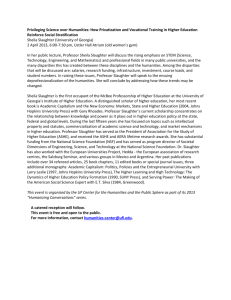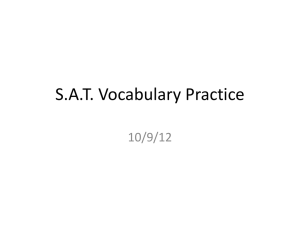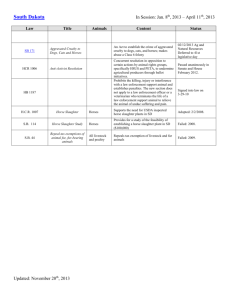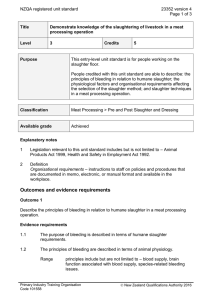read more - Institute for Women's Leadership
advertisement
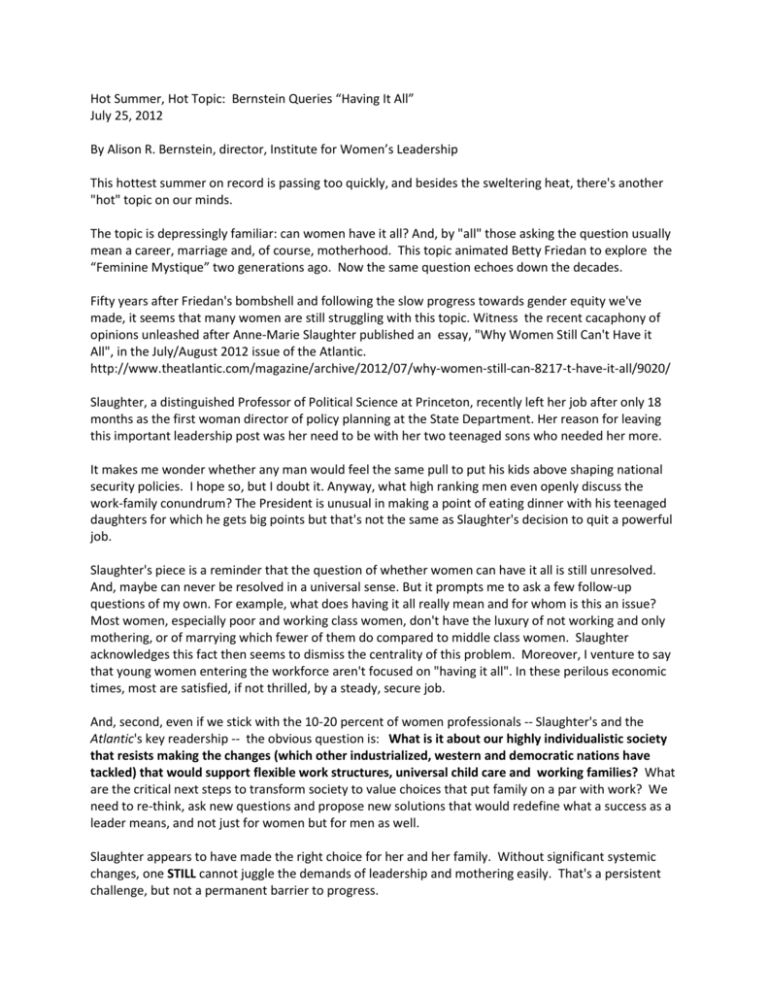
Hot Summer, Hot Topic: Bernstein Queries “Having It All” July 25, 2012 By Alison R. Bernstein, director, Institute for Women’s Leadership This hottest summer on record is passing too quickly, and besides the sweltering heat, there's another "hot" topic on our minds. The topic is depressingly familiar: can women have it all? And, by "all" those asking the question usually mean a career, marriage and, of course, motherhood. This topic animated Betty Friedan to explore the “Feminine Mystique” two generations ago. Now the same question echoes down the decades. Fifty years after Friedan's bombshell and following the slow progress towards gender equity we've made, it seems that many women are still struggling with this topic. Witness the recent cacaphony of opinions unleashed after Anne-Marie Slaughter published an essay, "Why Women Still Can't Have it All", in the July/August 2012 issue of the Atlantic. http://www.theatlantic.com/magazine/archive/2012/07/why-women-still-can-8217-t-have-it-all/9020/ Slaughter, a distinguished Professor of Political Science at Princeton, recently left her job after only 18 months as the first woman director of policy planning at the State Department. Her reason for leaving this important leadership post was her need to be with her two teenaged sons who needed her more. It makes me wonder whether any man would feel the same pull to put his kids above shaping national security policies. I hope so, but I doubt it. Anyway, what high ranking men even openly discuss the work-family conundrum? The President is unusual in making a point of eating dinner with his teenaged daughters for which he gets big points but that's not the same as Slaughter's decision to quit a powerful job. Slaughter's piece is a reminder that the question of whether women can have it all is still unresolved. And, maybe can never be resolved in a universal sense. But it prompts me to ask a few follow-up questions of my own. For example, what does having it all really mean and for whom is this an issue? Most women, especially poor and working class women, don't have the luxury of not working and only mothering, or of marrying which fewer of them do compared to middle class women. Slaughter acknowledges this fact then seems to dismiss the centrality of this problem. Moreover, I venture to say that young women entering the workforce aren't focused on "having it all". In these perilous economic times, most are satisfied, if not thrilled, by a steady, secure job. And, second, even if we stick with the 10-20 percent of women professionals -- Slaughter's and the Atlantic's key readership -- the obvious question is: What is it about our highly individualistic society that resists making the changes (which other industrialized, western and democratic nations have tackled) that would support flexible work structures, universal child care and working families? What are the critical next steps to transform society to value choices that put family on a par with work? We need to re-think, ask new questions and propose new solutions that would redefine what a success as a leader means, and not just for women but for men as well. Slaughter appears to have made the right choice for her and her family. Without significant systemic changes, one STILL cannot juggle the demands of leadership and mothering easily. That's a persistent challenge, but not a permanent barrier to progress. We at the IWL are committed to doing the research and providing the education for young women and their older sisters who are already in the workforce, to find answers that don't require women professionals to give up their hard-won power at home or on the job. Equally important, the kind of leadership we work for focuses on advancing a just and fair society that is as concerned with expanding life choices for all women not only the privileged few.
